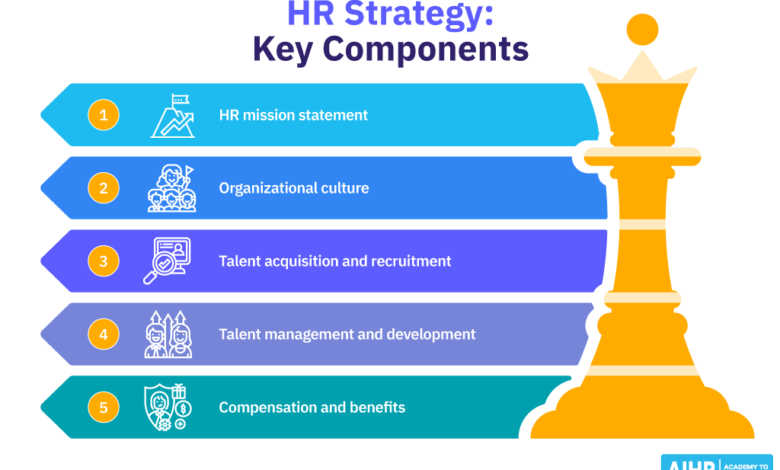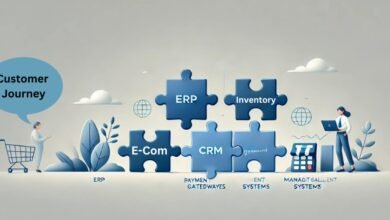Crafting a Dynamic Workplace: Insights into Effective Human Resources Strategies

The Role of HR in Modern Organizations
Human Resources (HR) departments are a vital backbone within the corporate structure. Traditionally pigeonholed as the gatekeepers for hiring and termination, the HR field has dramatically evolved to encompass various HR tasks. These include compliance with industry regulations, developing competitive compensation packages, and applying performance measurement tools.
The modern HR professional is required to possess not only administrative prowess but also strategic insight into fostering organizational growth. Their multifaceted role involves promoting ethical practices, advancing employee engagement, and ultimately contributing to a business’s sustainability and success in an ever-changing economic landscape. HR can enhance organizational performance by engaging employees and aligning human resources with strategic goals.
Key Takeaways
- Human resources (HR) responsibilities go beyond recruiting and firing; they are essential in determining the business’s culture and the employees’ working environment.
- Effective HR strategies can increase employee satisfaction, retention, and productivity.
- Integrating technology in HR is transforming traditional practices into more efficient systems.
How HR Shapes Company Culture
Corporate culture is the essence of the employee experience and significantly influences how a company is perceived internally and externally. HR professionals are crucial in shaping a harmonious company culture by advocating for inclusive policies, organizing team-building activities, and establishing a transparent communication channel. Initiatives like diversity training and responsive feedback systems are instrumental in embedding a culture of growth and mutual respect.
An equitable approach to culture enhances morale and engagement, leading to innovation and productivity. Major companies like Google emphasize cultivating a supportive environment where creativity is valued, and innovation is rewarded, thereby setting a benchmark for others.
Enhancing Employee Experience
The journey an employee takes within an organization is often called the employee lifecycle, encompassing everything from recruitment to exit interviews. Enhancing this experience requires intentional HR strategies acknowledging and fulfilling employees’ evolving needs. A company’s commitment to tailoring the onboarding process and providing regular developmental feedback can substantially impact job satisfaction and retention rates.
Research on enhancing employee experience shows that employees highly value career development opportunities and work-life balance. By actively engaging with these elements, organizations can cultivate a motivated workforce that is both productive and loyal.
Effective Recruitment Practices
Recruitment is the entry point for talent into an organization and sets the stage for future growth and innovation. Modern recruitment strategies aim to find candidates with the proper skill set and ensure that potential hires align with the company’s values and culture. HR departments are now integrating AI tools and analytics to streamline recruitment, minimizing bias while maximizing efficiency.
Effective recruitment also leverages diverse channels to access talent, from online professional networks to university partnerships. By nurturing this variety, organizations can ensure they integrate fresh perspectives and innovative ideas, fostering an environment that thrives on diversity and inclusion.
Read Also: Top Industries That Benefit From Mass Text Messaging
The Impact of Technology on HR
The infusion of technology into HR has redefined its operational landscape, offering tools that significantly enhance capabilities and efficiency. Technology, such as cloud-based HR management systems and AI-driven analytics, provides data-driven insights that influence strategic decisions and policy developments.
With the ability to automate routine tasks and uncover trends in employee performance, technology is poised to make HR practices more responsive and effective. As reported by industry leaders, the objective is to utilize these technologies efficiently and create a more personalized and engaging experience for employees, thereby supporting their growth and satisfaction.
Current Challenges in Human Resources
In the current corporate milieu, HR departments face an array of challenges. The global shift toward remote work has introduced complexities related to maintaining team cohesion and ensuring consistent performance. Furthermore, data privacy and security issues add complexity to HR responsibilities.
Addressing these challenges requires a nuanced approach and a willingness to adapt to new realities. It involves continuous learning, strategic foresight, and policies emphasizing flexibility and employee welfare. By staying ahead of these challenges, HR can effectively guide their organizations through times of change.
Future Trends in HR
As the business world evolves, so must the strategies employed by HR professionals. The future of HR is expected to be characterized by more personalized employee experiences, with tailored benefits and programs designed to meet the specific needs of each employee. There is also a growing emphasis on continuous learning and development as businesses seek to maintain competitive agility in rapidly changing markets.
Trends such as increased focus on mental health, enhanced diversity and inclusion practices, and the deployment of AI-driven systems are poised to redefine the HR landscape. Embracing these trends will allow HR to support organizational goals and lead workforce transformation initiatives.
Conclusion
In conclusion, human resources are no longer confined to traditional roles of hiring and firing; they are now pivotal in shaping a company’s culture and driving its strategic goals. By fostering a positive and inclusive culture, enhancing employee experiences, and implementing effective recruitment practices, HR professionals significantly contribute to organizational success.
Technology integration has revolutionized HR practices, enabling more efficient, data-driven decision-making and a personalized approach to employee engagement. However, challenges such as remote work dynamics and data privacy require HR to remain adaptable and forward-thinking.
As the business environment continues to evolve, HR must embrace trends like personalized benefits, continuous learning, and AI-driven solutions to stay competitive. By focusing on these future trends, HR can enhance employee satisfaction and ensure the organization’s long-term success.




